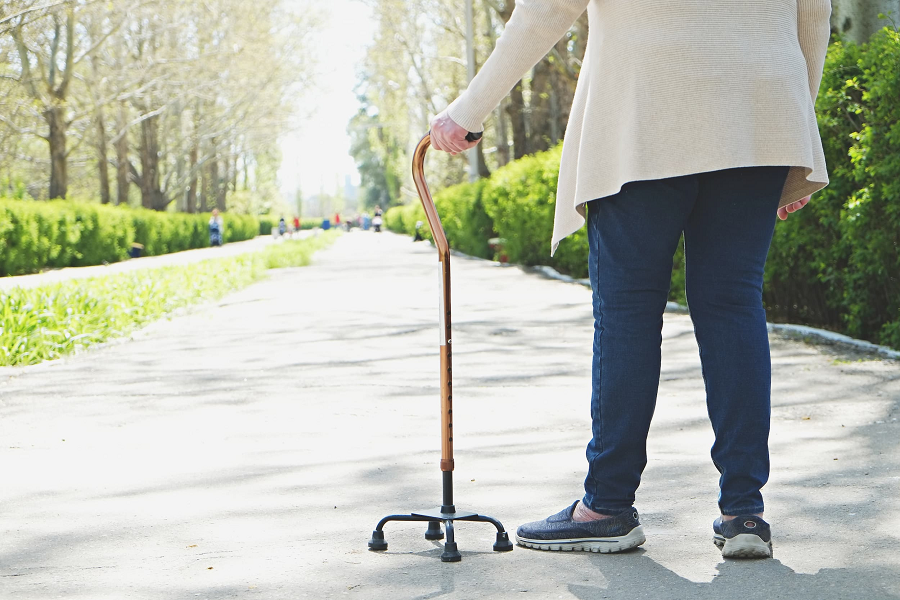We have noticed you are using an older version internet browser. To gain the best experience from our site we recommend upgrading your internet browser.
How to exercise with limited mobility
We all know that staying active is good for our health, but sometimes life gets in the way. Perhaps you’ve recently welcomed a new bundle of joy into your family and had to reduce your physical activity during the pregnancy. Maybe you’ve been recovering from illness or injury and had to put your exercise routine on hold for a while. Alternatively, if you have a disability or find you can’t do the things you used to because of your age, you might have found it difficult to stay active.
Whatever the case, gentle, low impact exercise can be an effective way to up your activity levels in a way that’s achievable for you. Keep reading to find out more.
How to start exercising gently
The first and most important thing to keep in mind if you want to get back into physical activity is to get medical advice. Whether illness, injury, disability or pregnancy have kept you away from exercise, it’s best to speak to a doctor or pharmacist about what kind of activity is safe for you to get started with. This is because jumping back in too soon with certain activities could make things worse for you rather than better, and you don’t want to exacerbate any injuries you might already have.
Once you’ve done this, it’s likely that you will have been recommended a few different activities by your healthcare team. These are probably low impact exercises such as walking, swimming or Pilates. Even if your health allows you to do higher impact exercises like running, it’s a good idea to start off with these gentler activities. One of the benefits of low impact activities is that they put less stress on the joints of your body – meaning they’re often easier to get into if your fitness level isn’t as high as you’d like.
There are a few things you can do to make getting back into exercise easier. Let’s look at some of them now.
Choose an activity you enjoy
It sounds like common sense, but many people still believe that exercise should be something of a chore. That just isn’t true. Picking a type of exercise that you get some enjoyment out of, whether it’s walking, rowing or playing a sport, means you’re much more likely to stick to your new exercise habit and see the benefits in your health and wellbeing.
Don't try to do everything all at once
We might like our cars to go from 0 to 60 in just a few seconds, but that doesn’t mean you should try it. If you go from doing little to no exercise straight to joining a running club, swimming every morning and playing football every weekend, you’ll probably find you very quickly lose enthusiasm and tire out quickly. This can even put you at greater risk of injuring yourself.
Instead, phase yourself back into exercising. Starting with something you do solo can be a good choice, because that allows you to take things at your own pace, but you can also join a group if you’re more likely to enjoy it. Some exercise groups are specifically arranged for people getting back into exercise, so this might even be more helpful.
Use the things that are there to support you
It can be tempting to think that exercise is better for you if you can do it without mobility devices such as sticks or walkers. While it’s true that pushing your limits can allow you to grow, it’s best not to take risks with your mobility unless you have medical advice or supervision.
By using your mobility devices, you can help to protect yourself against the dangers of falls, as well as reducing the strain you’re putting on your body. You might even be able to go further and get more exercise. Your mobility devices are designed to support your mobility, so let them.
Why is it important to start exercising gently?
As we’ve mentioned earlier, trying to dive in at the deep end with your exercise routine can make you more likely to injure yourself, which can really set you back on your quest to become more active. But it’s not just the effects on your physical health that you should think about.
When you start a new exercise routine, you’re essentially setting new habits that involve physical activity. Setting one small habit, for example an evening stroll, can be easier to achieve than setting three or four. It’s less for your brain to remember, and you can concentrate on getting into the groove with that one exercise. Then, once it’s something you don’t even think about anymore, you can start to add new activities – perhaps a fitness class or a regular sports meetup – slowly and surely.
But starting slowly doesn’t have to mean not pushing yourself. You can gradually increase the duration of your exercise session as your fitness improves. For example, you might start off with a 10-minute walk around the block each evening. Then, as that becomes more comfortable, you might stretch it to 20 minutes, then 30. Then you might add longer hikes on the weekends.
How ever you prefer to get back into exercise, doing so can bring great benefits to your physical health and overall wellbeing. Don’t forget to always get medical advice before starting a new exercise regimen to ensure you’re doing what’s right for your body.
Copyright © 2024 Chums
PayPal Representative Example:
Representative 23.9% APR (variable) Purchase interest rate 23.9% p.a. (variable) Assumed Credit limit £1,200.
PayPal Credit and PayPal Pay in 3 are trading names of PayPal UK Ltd, Whittaker House, Whittaker Avenue, Richmond-Upon-Thames, Surrey, United Kingdom, TW9 1EH. Terms and conditions apply. Credit subject to status, UK residents only, Chums Ltd acts as a broker and offers finance from a restricted range of finance providers. PayPal Pay in 3 is not regulated by the Financial Conduct Authority. Pay in 3 eligibility is subject to status and approval. 18+. UK residents only. Pay in 3 is a form of credit. Check if affordable and how you will repay. May make other borrowing more difficult or expensive. See product terms for more details




